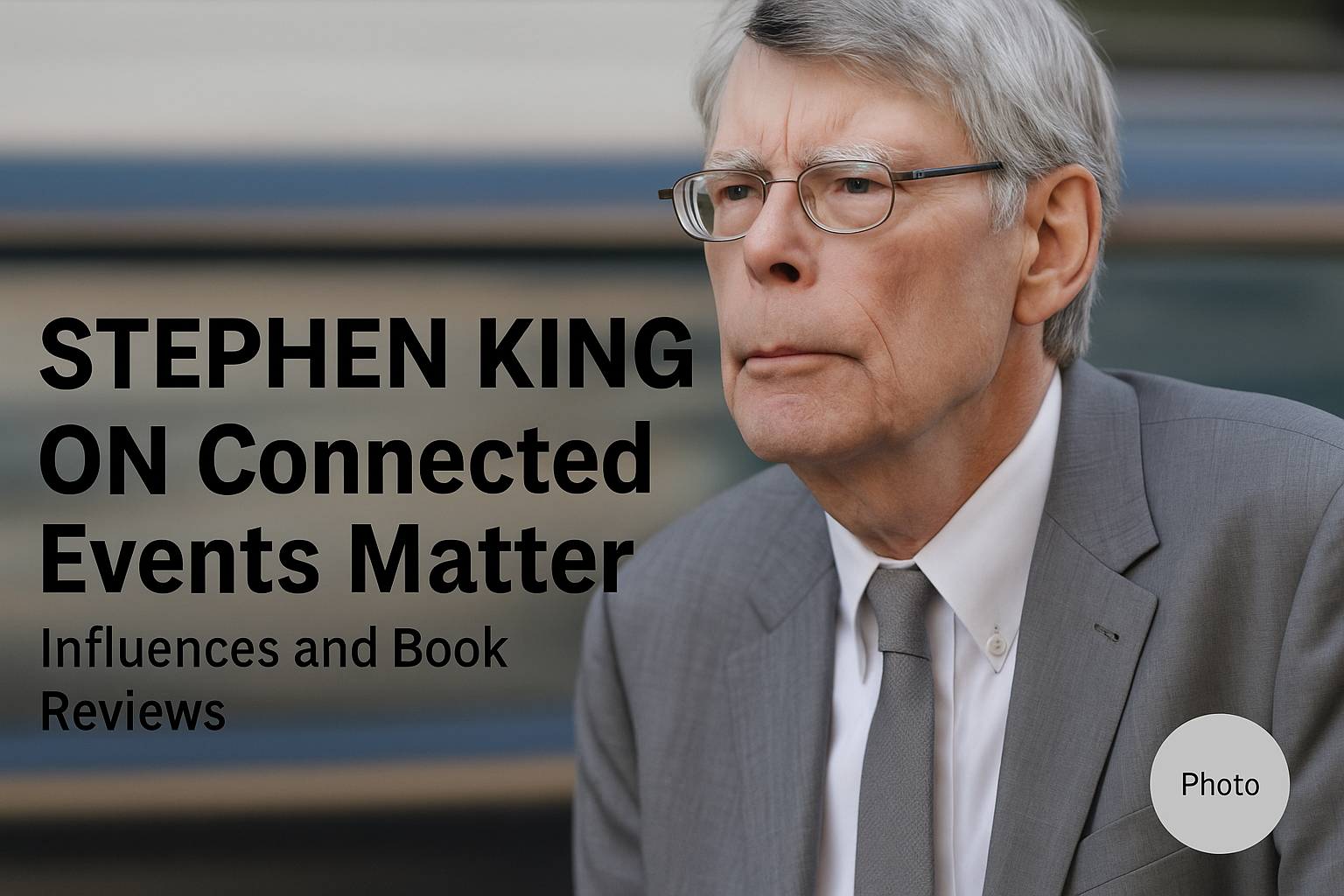Stephen King: The Writer Who Taught Me to Read Differently
Stephen King is often described as the master craftsman of storytelling—not just because of the stories he tells, but because of the way he tells them. His book On Writing: A Memoir of the Craft is part autobiography, part writing manual, and fully a reflection of the discipline and passion that fuels his creative process.
Early in the book, King offers this sharp reminder:
“You must not come lightly to the blank page.”
The weight of that quote becomes even more powerful when you realize the context in which the book was completed. In June of 1999, while walking along a familiar stretch of rural road near his home in Maine, King was struck by a van. The impact threw him 14 feet off the road and left him with life-threatening injuries. At the time, he was only halfway through the first draft of On Writing. His detailed account of the accident and his painful recovery is as compelling as any of his novels—and shows just how seriously he took his own advice about returning to the page.
The book covers more than his near-death experience. It traces his childhood, early struggles, marriage, and eventual breakout success with Carrie. But it also dives deep into the mechanics of writing—how sentences work, why adverbs usually don’t, and what it takes to find your voice. As you read, you’re not just learning about writing; you’re learning through writing. His life becomes the lesson.
There’s one line in particular that shifted how I see reading and writing:
“If you want to be a writer, you must do two things above all others: read a lot and write a lot.”
That principle took a while to truly sink in for me. Reading, I came to understand, isn’t just entertainment—it’s education. King helped me see that reading widely, not just from “classic literature” but from good storytelling in any form, is a critical part of developing your own voice.
His influence changed the way I read and what I choose to read. I still enjoy many of his books, though I admit a few have scared me more than I expected—Christine and Revival in particular stayed with me long after I finished them. But fear, I’ve learned, can be a powerful teacher.
I may have a whole section of my website dedicated to Stephen King, but that’s not just about admiration—it's about recognizing how deeply his advice shaped my approach to both reading and writing.



